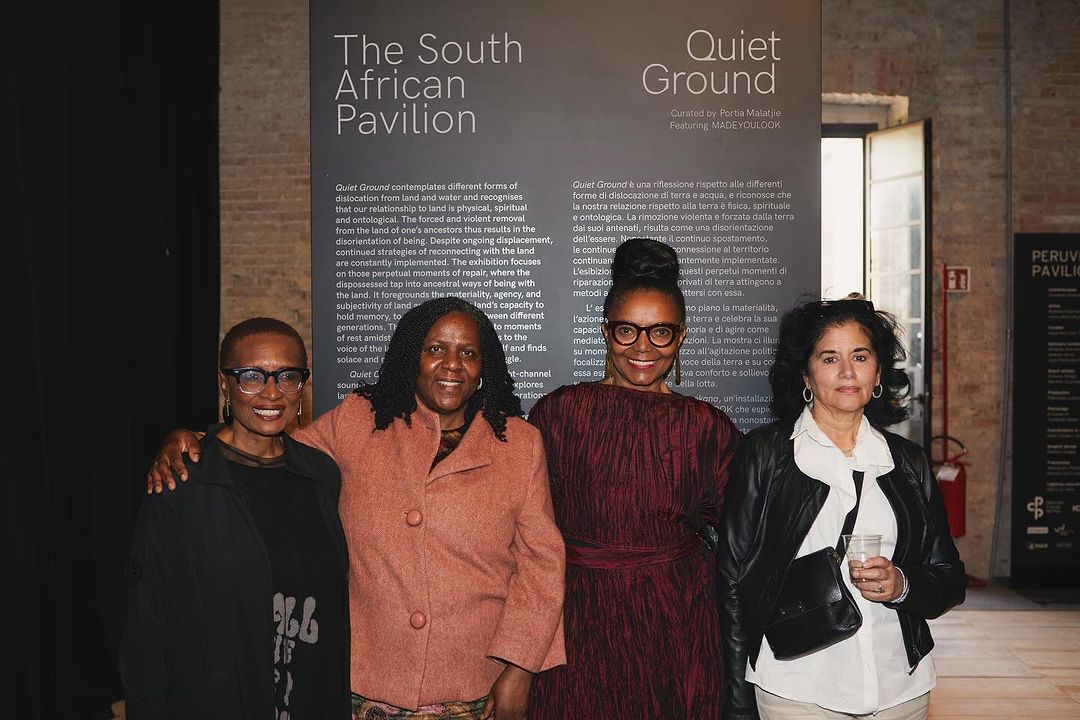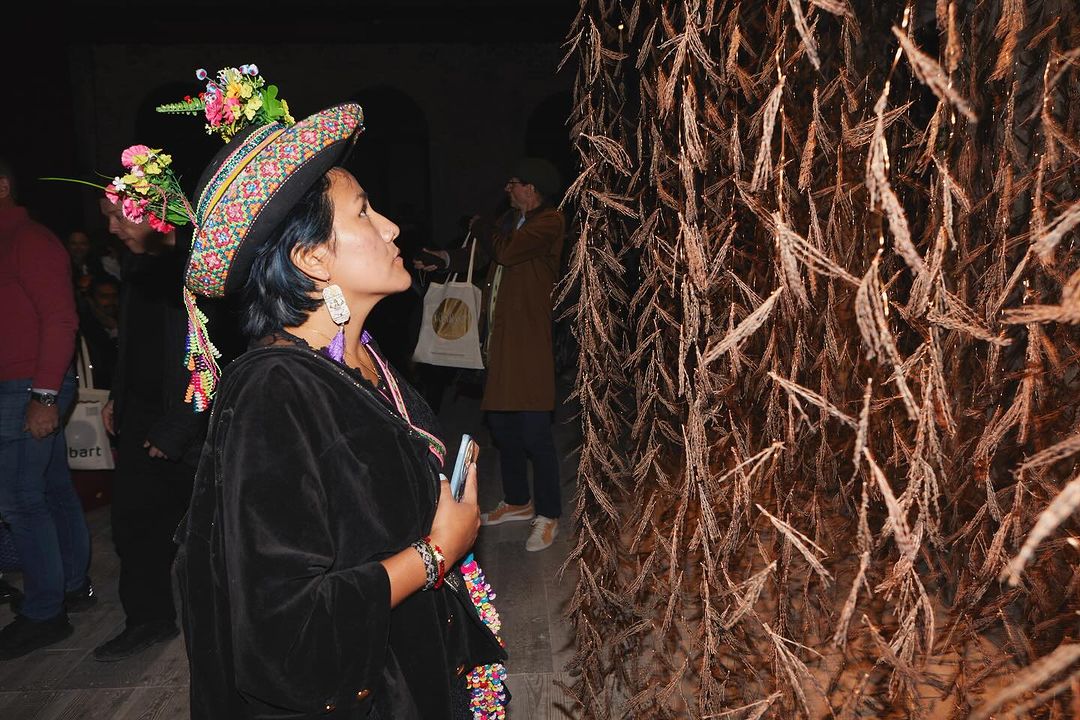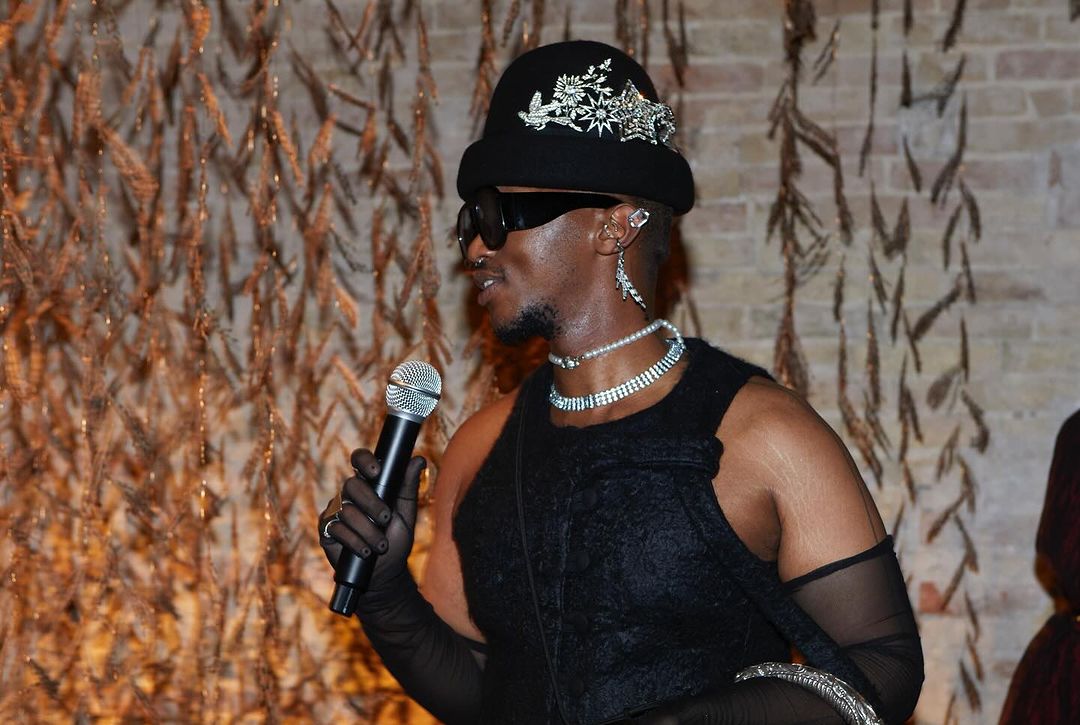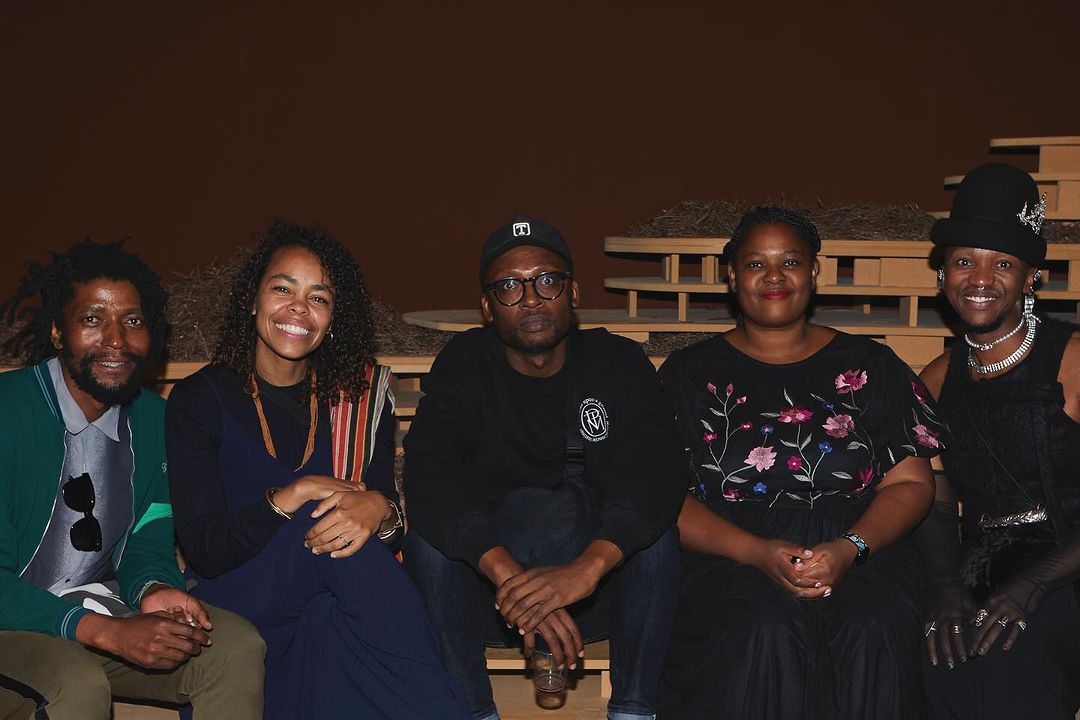In an exchange that felt more like a salubrious meeting of minds, Dr. Portia Malatjie, the accomplished Head Curator for the South African Pavilion at the 60th Edition of the Venice Biennale, shared insights into her curatorial approach and explained her take on the prestigious global event’s theme “Stranieri Uvunque” (Foreigners Everywhere). Malatjie elaborated on the concepts behind MADEYOULOOK’s Quiet Ground (2024), which explores the complexities of land and belonging in the context of South Africa’s history of migration and displacement.
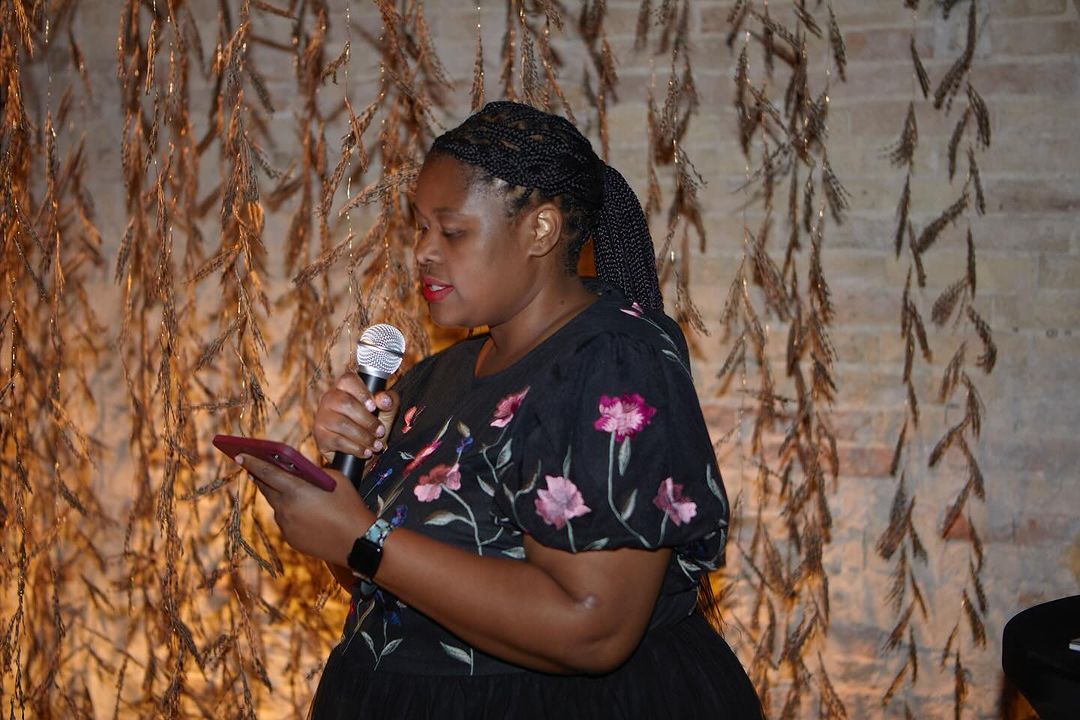
Thembeka Heidi Sincuba: Please tell us a little bit more about the Quiet Ground presentation at this year’s Venice Biennale.
Portia Malatjie: Trying to have an affinity with the broader Biennale theme of ideas of foreign influence … I wanted to think of it not necessarily in relation to cross-border ideas of foreigners, which becomes quite a dominant narrative in thinking about the idea of foreign, [or] foreigner … in the context of South Africa. But … try to think of … a foreigner as someone who is also South African, living in South Africa. But you’re still feeling displaced, … from the land, right? This idea of being foreign, even from your own state, even from your own land, even from your ancestors.
… which then led to thinking about land and land politics. … the history of South Africa with the migration, displacement. … being moved around unwillingly [to] different areas of the world, of the country … being removed or displaced from, say, fertile land … and being moved to an area that is arid. In other words, it’s a desire … to focus beyond the violence, understanding obviously that the violence does contextualize relations to a large degree. But also thinking about some of the healthy relationships that people have with land, that … in the context of Black beings, ties to spirituality, to the ontology that’s related to land.
… but there was also this desire to think about the land as having its own place. … thinking about the materiality of land and … one then thinks of how it is able to communicate to us … so for this idea of Quiet Ground, the land is infused with its own agency … as something [with its own] ability to either be loud or to be silent or to be quiet. The background also evaluates [the] aftermath of struggle, you know? I’m thinking of, for instance … when there’s political turmoil, the land sort of takes advantage of that. But then there’s this idea of focusing on perhaps the moment after turmoil when the land is quiet; when the land is able to listen to itself as it were.
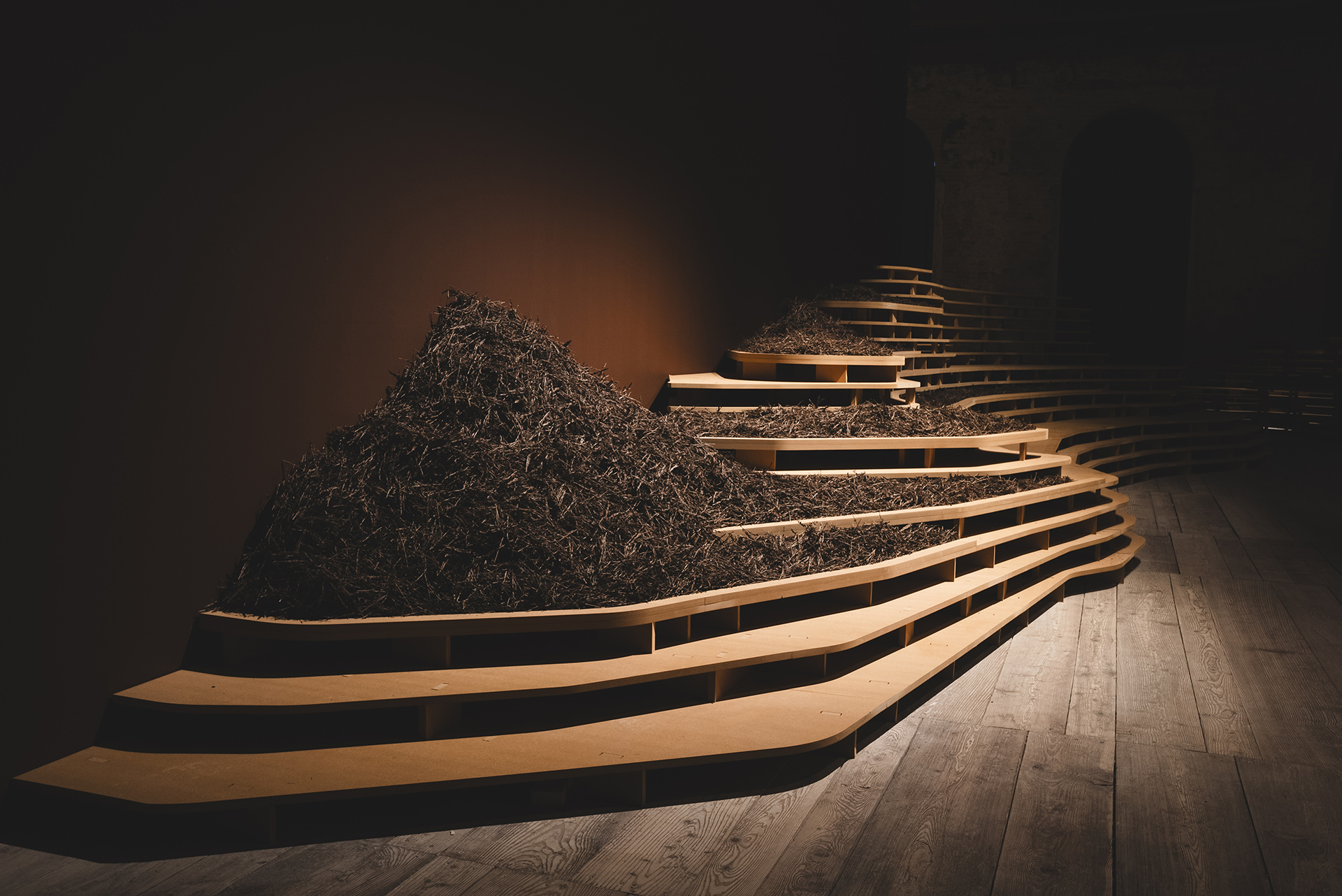
THS: I’m also interested in the way that I perceive that you curate—with care. Or even, curating as care. Which is, I guess, quite a Black feminist or indigenous methodology. You use terms like ‘personal and communal repair’ or ‘foreign at home’ … could you talk to us a little bit about this idea of curating from a different departure point than sort of curating in a strictly academic or canonical way?
PM: Oh, I like that. Very interesting. … thank you for saying that. Yeah, I just think that probably has a lot to do with the ideas and themes that I am often interested in. … for instance, I was thinking of … the exhibition [Batlhaping Ba Re! (2019)] of Mme Helen Sebidi that I did at Norval Foundation. … how the care that needed to be taken there was this idea … of doing an exhibition in collaboration with an elder.
You know, thinking about the different people around you that you want to engage with. … but also trying to be sensitive … to her methodology, which doesn’t necessarily align with mine. … When I was speaking to Mme Helen … I had to calm down and work to her rhythm. … the history that we were dealing with…. Black women … practices … have been mentioned here and there but never really properly engaged. It was certainly this idea of needing to be able to care for the Black archive, to care for these Black women’s histories.
… then with Quiet Ground, was a dedication to land itself. Meaning … one can think of it as, if you care for the land, it’s able to care for you. … it’s ideas that are oftentimes … quite difficult. So it becomes my technique to be able to approach things with sensitivity … I guess … necessarily be careful about how you’re engaging it … to engage it with care, you know?
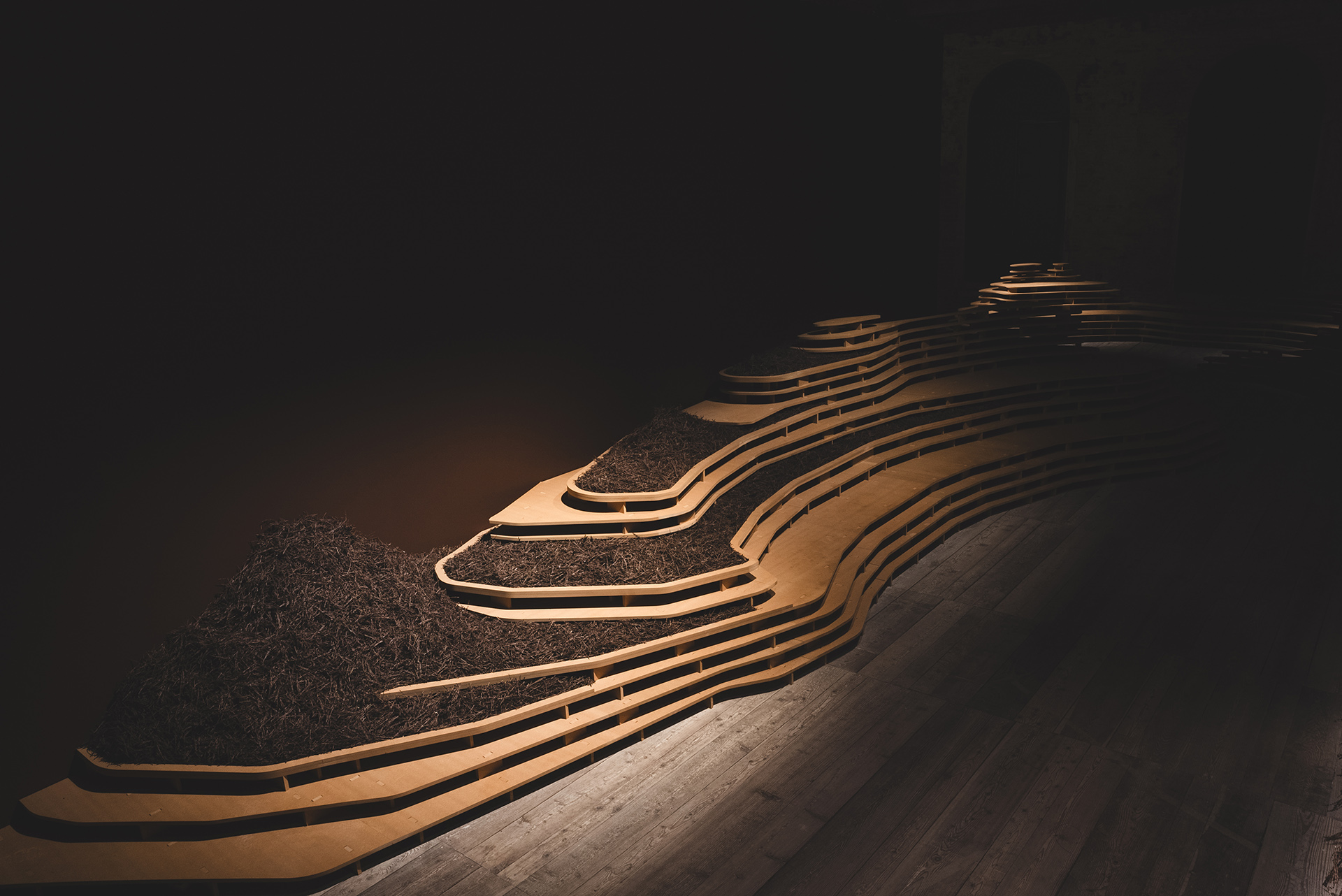
THS: There’s a paradox there, right? Notions of caring for the land are often entangled with land ownership and labour, which have violent connotations in South Africa.
PM: … in thinking about land and it having its own subjectivity, its own agency, there’s also this idea of thinking of it as not, as something that should necessarily be possessed.
… for instance [in rural areas], what actually ends up happening is if you want a place to stay, then the … chief or the king of the community—I’m saying king because I was reading something that said the way we perceive royalty is a bit skewed by colonialism, in order to dilute the merit of kingdoms; … they start[ed] imposing language such as chief or nduna … This is like a couple of weeks ago that I learned this.
THS: It all makes sense. Even if you think about the contemporary moment, how people make jokes about Africans going to the West and pretending to be royalty, or even Coming to America (1988), the movie, there are so many examples of people making fun of that, right?
PM: Right. But again, it’s ingrained, but in making fun of it … there’s essentially a system of diminishing the importance of [African notions of royalty]. … it becomes a source of ridicule … So, in terms of possession … if you want a place to live … the king or queen might actually demarcate a specific area and say, ‘Okay, we’re going to need to make this particular area a place for people to set up house’, right?
… like a plot of land, in order to build a home there. … you are allocated that piece of land and you’re like, ‘okay, this is my land’, (but) if you don’t use it, if you don’t build that, and somebody else comes and says, ‘I need a piece of land’, then they’re able to actually just give that land to somebody else. … So in that case, then you don’t actually ever own the land. You know? The land is its own entity. You don’t possess the land.
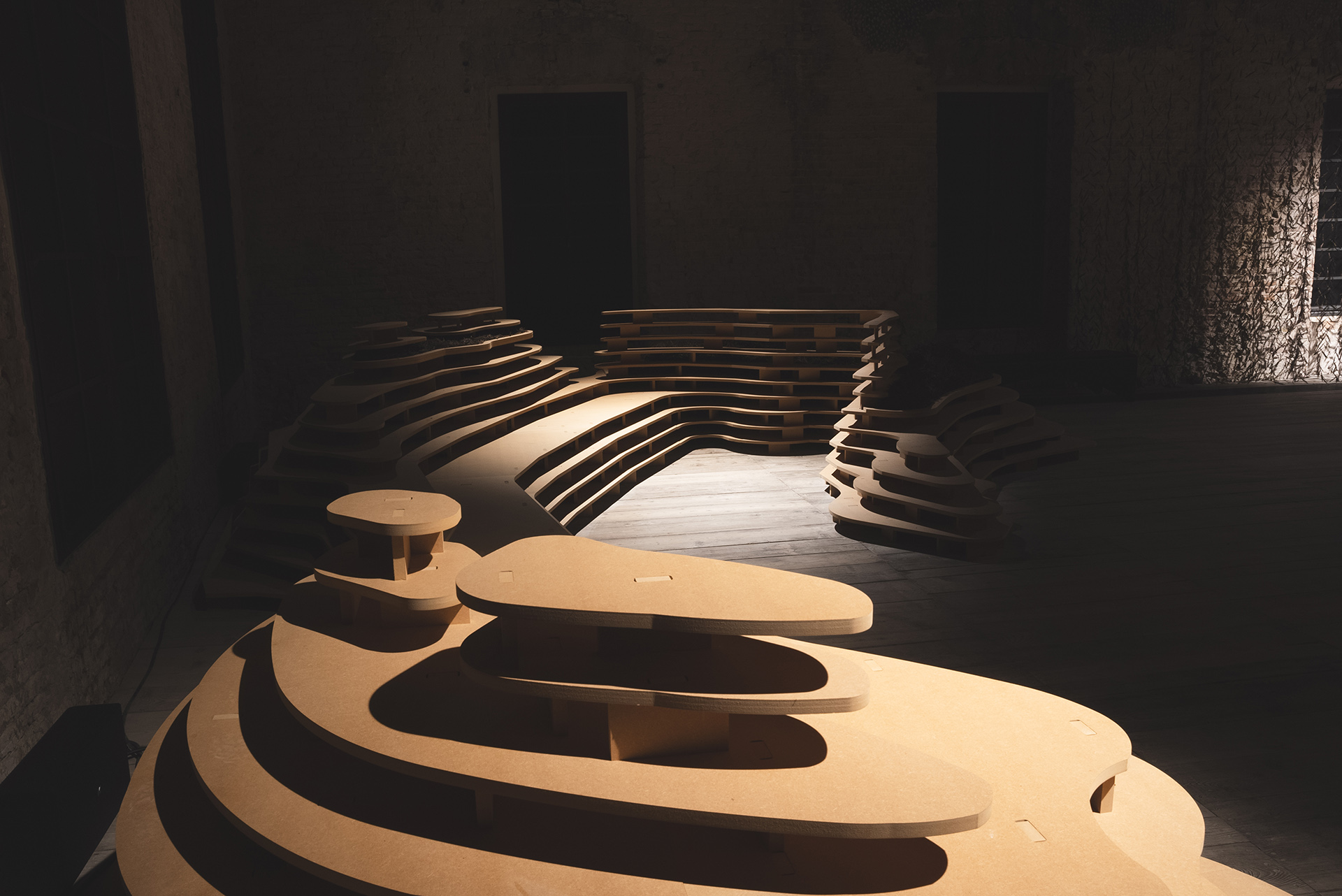
THS: But then in this paradigm, the idea of “foreigner” doesn’t necessarily exist, right?
PM: Right. Because you belong wherever you are, and it’s not about the land belonging to anyone. But I don’t know, I feel like maybe because when you set up roots, you know, you have to go and … call your ancestors, right? Some people do rituals to be like, ‘Okay, this is where I am now situated’. Do you know what I mean? … And so … I imagine that … if you were to leave, you would then say [that] to your ancestors. … So even though it may not be permanent, you are rooted in that place.
But what happens then with migration is that there’s a violent removal from that land where you’re not moving willingly, maybe you haven’t done the process of saying to your ancestors … So, since our belonging, our being, is very much rooted also to our ancestors, the minute you … go elsewhere, then you are foreign.
So maybe then this idea of foreignness, in that case, [is] not being necessarily grounded in the physicality of the land, but also … thinking of it as ‘I have grounded myself spiritually and theologically’, and now I’m no longer there, and I’ve also not performed the correct rituals to be able to move from that place, to now be in another place.
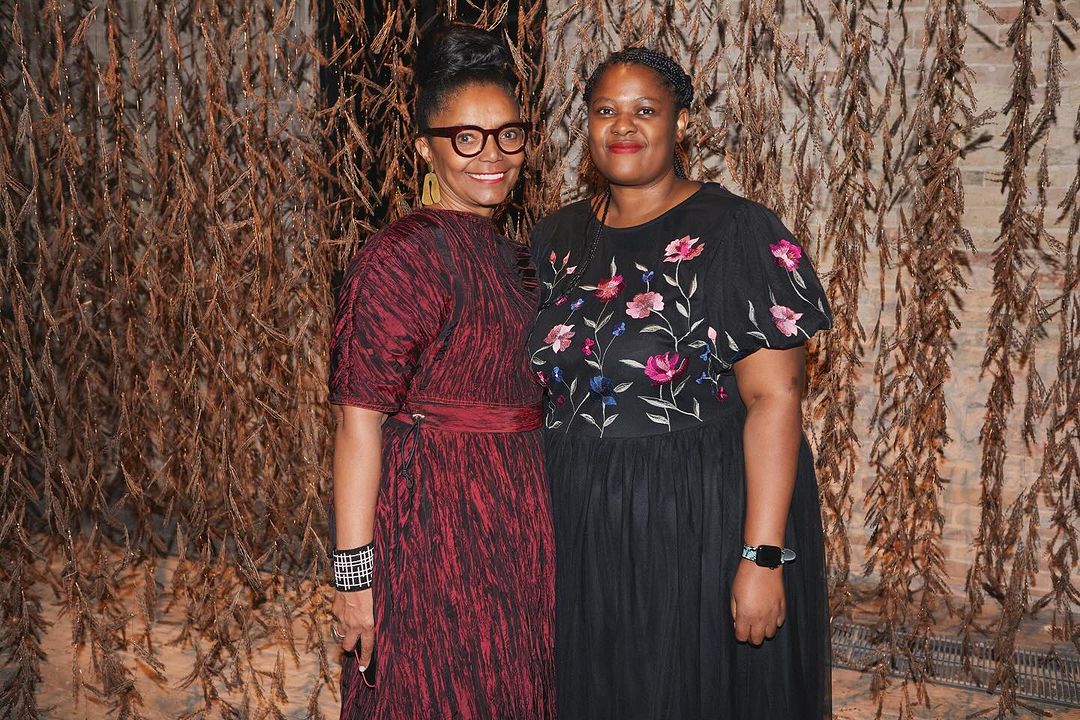
If it were up to me, our conversation would have gone on for ages. What fascinates me about Malatjie’s work is the desire to consider not only the violence but also the care practices related to land. Malatjie, who currently serves as Adjunct Curator at Tate and Senior Lecturer at Michaelis School of Fine Art, asks uncomfortable questions like “Why are wars waged over land?” while trying to articulate the nuances and exploring different engagements that signal some of the emerging discourse around land, particularly in South Africa.
Malatjie’s curatorial methodology of promoting principles of care, not only sensitively soothes the stubborn wounds of the past, but audaciously begins to carve out space in the canon for concepts rooted in indigeneity. By challenging hegemonic notions of what art can do, she successfully supported a more inclusive art landscape through her harrowingly thoughtful engagement with MADEYOULOOK’s Quiet Ground at this year’s Venice Biennale. Malatjie’s considered vision is supremely relevant in an ever-transforming, yet impetuous world.
